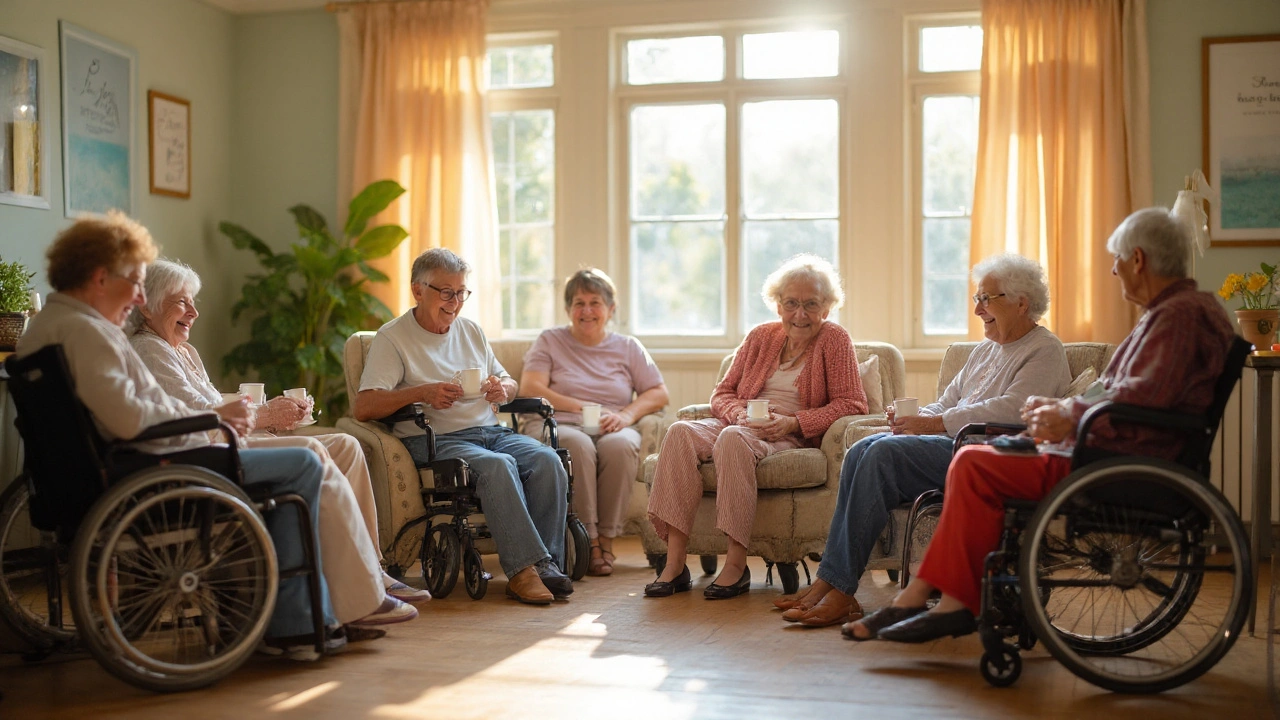Sclerosis Social Engagement: Connect, Share, Thrive
Living with sclerosis can feel isolating, but staying socially active makes a real difference. When you talk to people who get what you’re going through, stress drops, mood lifts, and even symptoms can ease. This guide shows you quick, low‑key ways to build a support network without overwhelming yourself.
Why Community Matters
Research shows that strong social ties lower fatigue and depression levels in people with multiple sclerosis and related conditions. A friendly chat can trigger the release of feel‑good chemicals that protect the brain. Plus, sharing tips—like which brace works best or how to handle a flare‑up—keeps you from reinventing the wheel. In short, community is a free, powerful medicine.
Beyond the mental boost, staying connected encourages physical activity. Walking to a group meeting, joining a gentle yoga class, or simply stretching with a buddy keeps joints moving and circulation flowing. Even virtual meet‑ups get you out of the house, which helps break the sedentary habits that can worsen symptoms.
Easy Ways to Get Involved
Start local: check community centers, libraries, or hospitals for sclerosis support groups. Most meet once a month and are free or low‑cost. If you’re not comfortable walking out yet, ask the organizer if they stream the session. A quick phone call can lock down a spot.
Go online: platforms like Facebook, Reddit, and dedicated forums host thousands of members sharing daily challenges and wins. Join a few threads, read the rules, then jump in with a question or a quick “hi”. You’ll soon notice familiar names and feel less alone.
Try a hobby that invites interaction. Book clubs, art classes, or gardening groups often have members of all ability levels. Choose something you enjoy, let the organizer know about any mobility needs, and you’ll get a built‑in reason to meet people regularly.
Volunteer in a cause you care about—whether it’s raising awareness for sclerosis research or helping at a local charity. Giving back creates purpose and naturally expands your circle. Even a few hours a month can shift focus away from symptoms and toward something positive.
Don’t forget family and friends. Schedule a weekly coffee call or a video chat. Share a short update about how you’re feeling and ask about their day. Small, consistent check‑ins build a safety net you can rely on when things get tough.
Finally, track your social activity. A simple notebook or phone note titled “My Connections” can list events you attended, people you met, and how you felt afterward. Seeing the pattern of positive experiences reinforces the habit and motivates you to keep going.
Social engagement isn’t a one‑size‑fits‑all prescription, but mixing a few of these ideas can turn isolation into connection. Start small, stay consistent, and watch how a supportive community lifts both your mood and your health.
Sclerosis and Social Life: Practical Tips to Stay Connected
Discover actionable strategies for people with sclerosis to stay socially active. Learn about support groups, digital tools, fatigue management, and inclusive activities that boost connection and wellbeing.
